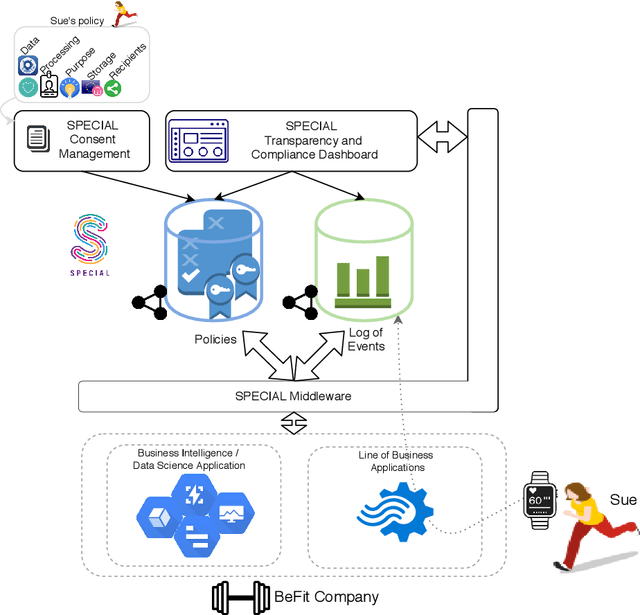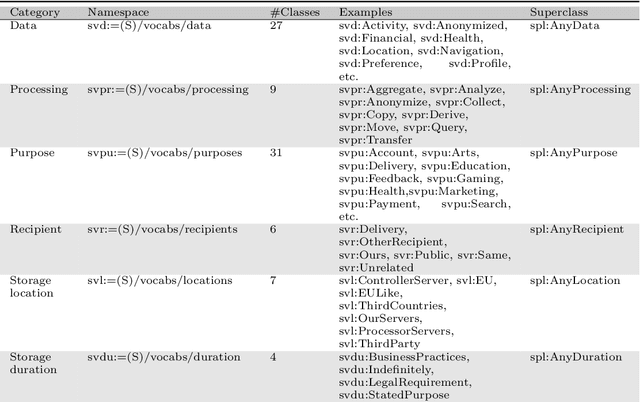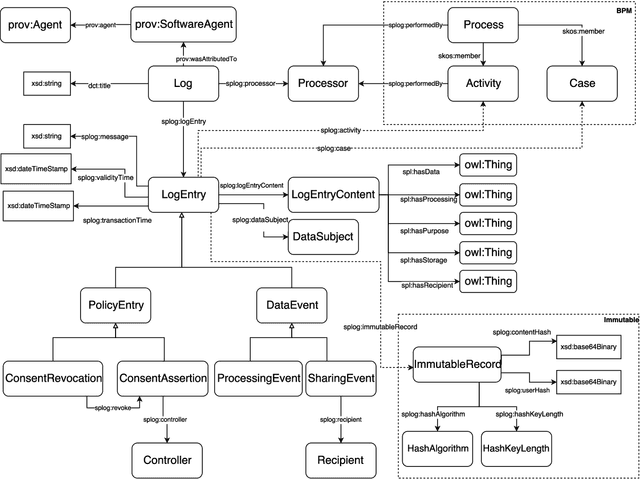Piero Bonatti
CQE in OWL 2 QL: A "Longest Honeymoon" Approach
Jul 22, 2022Abstract:Controlled Query Evaluation (CQE) has been recently studied in the context of Semantic Web ontologies. The goal of CQE is concealing some query answers so as to prevent external users from inferring confidential information. In general, there exist multiple, mutually incomparable ways of concealing answers, and previous CQE approaches choose in advance which answers are visible and which are not. In this paper, instead, we study a dynamic CQE method, namely, we propose to alter the answer to the current query based on the evaluation of previous ones. We aim at a system that, besides being able to protect confidential data, is maximally cooperative, which intuitively means that it answers affirmatively to as many queries as possible; it achieves this goal by delaying answer modifications as much as possible. We also show that the behavior we get cannot be intensionally simulated through a static approach, independent of query history. Interestingly, for OWL 2 QL ontologies and policy expressed through denials, query evaluation under our semantics is first-order rewritable, and thus in AC0 in data complexity. This paves the way for the development of practical algorithms, which we also preliminarily discuss in the paper.
The SPECIAL-K Personal Data Processing Transparency and Compliance Platform
Jan 26, 2020



Abstract:The European General Data Protection Regulation (GDPR) brings new challenges for companies, who must provide transparency with respect to personal data processing and sharing within and between organisations. Additionally companies need to demonstrate that their systems and business processes comply with usage constraints specified by data subjects. This paper first presents the Linked Data ontologies and vocabularies developed within the SPECIAL EU H2020 project, which can be used to represent data usage policies and data processing and sharing events, including the consent provided by the data subject and subsequent changes to or revocation of said consent. Following on from this, we propose a concrete transparency and compliance architecture, referred to as SPECIAL-K, that can automatically verify that data processing and sharing complies with the relevant usage control policies. Our evaluation, based on a new transparency and compliance benchmark, shows the efficiency and scalability of the system with increasing number of events and users, covering a wide range of real-world streaming and batch processing scenarios.
 Add to Chrome
Add to Chrome Add to Firefox
Add to Firefox Add to Edge
Add to Edge